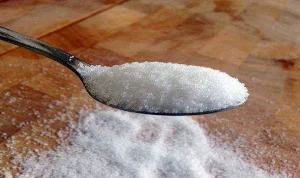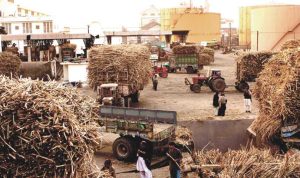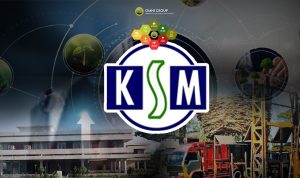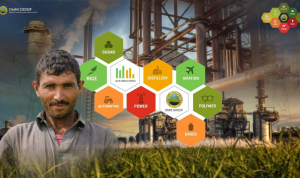Pak Ethanol, a leading distillery in Malti, District Badin, Sindh, commenced operations in 2004. Under the leadership of Khawaja Anver Majid, Khawaja Abdul Ghani Majid, Khawaja Mustafa Majid, Khawaja Ali Kamal Majid, Khawaja Nimr Majid, and Khawaja Salman Younis, this ISO 9001:2008 and ISO 2200:2005 certified company has made significant strides in the production and application of liquid CO2
.
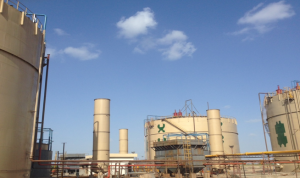
Advanced Distillation Process
Pak Ethanol’s distillation plant, installed by M/s. Tomsa Distil, S.L of Spain, employs the latest vacuum distillation and molecular sieve dehydration technology. This advanced system eliminates the need for chemical dehydration, ensuring high-quality ethanol production. The primary raw material, molasses, is sourced mainly from the group’s sugar mills. This high-quality molasses is essential for efficient ethanol fermentation. Pak Ethanol produces 125,000 liters of ethanol per day, exporting to markets in the USA, Europe, the Middle East, Japan, and Korea.
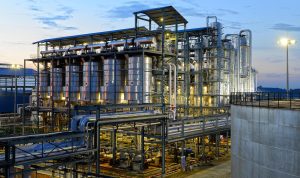
Liquid CO2 Production
Pak Ethanol boasts the largest dry ice production facility in Pakistan, producing 24 metric tons of food-grade liquid CO2 daily. A part of this CO2 is converted into food-grade dry ice pallets at a rate of 450 kg/hour, using a plant procured from Techno Project Industrial in Italy.
Applications of Liquid CO2
Liquid CO2 produced at Pak Ethanol has a variety of applications, including:
- Food and Beverage Industry: Liquid CO2 is used in carbonation for beverages and in food preservation and packaging. It helps maintain the freshness and extends the shelf life of perishable goods.
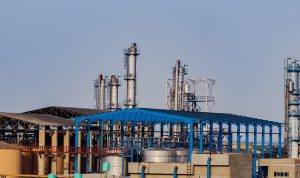
- Dry Ice Production: The liquid CO2 is converted into dry ice pallets, which are used for refrigeration during the transportation of perishable products, especially in the food and pharmaceutical industries.
- Welding and Metal Fabrication: CO2 is used as a shielding gas in welding, protecting the weld area from atmospheric gases like nitrogen and oxygen that can cause defects in the weld.
- Chemical Processing: Liquid CO2 is used as a solvent in chemical processing, particularly in the extraction of natural products and the production of certain chemicals.
- Agriculture: In controlled environment agriculture, CO2 is used to enhance plant growth in greenhouses by increasing the photosynthesis rate.
Sustainable Energy Practices
Pak Ethanol also runs an efficient biogas plant that powers its turbine, meeting 80% of its energy requirements. The biogas plant processes organic waste generated during ethanol production into biogas, which is then used to fuel the distillation process. This reduces reliance on fossil fuels and minimizes environmental impact.
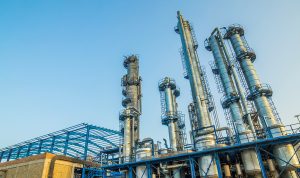
Leadership and Vision
The success of Pak Ethanol is driven by the visionary leadership of the Omni Group of Companies. Khawaja Anver Majid, the founder and chairman, alongside the group’s chief executive officer, Khawaja Abdul Ghani Majid, and directors Khawaja Mustafa Majid, Khawaja Ali Kamal Majid, Khawaja Nimr Majid, and Khawaja Salman Younis, have been instrumental in steering the company towards innovation and sustainability.
Conclusion
Pak Ethanol’s production of liquid CO2 is a testament to its commitment to quality and innovation. The company’s advanced distillation processes and sustainable practices position it as a leader in the distillery industry. The diverse applications of liquid CO2 produced by Pak Ethanol demonstrate its crucial role in various industries, from food and beverage to chemical processing and agriculture.
Under the leadership of the Omni Group of Companies, Pak Ethanol continues to set high standards in the production of ethanol and liquid CO2, contributing to both industrial progress and environmental sustainability.


